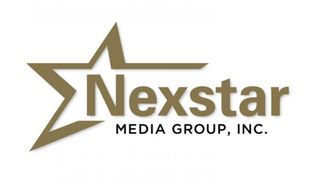Nexstar: 50% Cap Would Be Arbitrary and Capricious

While some broadcasters--including Hearst and Scripps have argued the FCC should raise the 39% cap on a TV broadcast group's national reach, Nexstar is telling the FCC that the cap has to go. It even suggests setting a 50% cap would be arbitrary and capricious and thus a violation of law.
In comments on the commission's review of the cap and associated UHF discount--the FCC is expected to tee up a vote next month on a proposal based on that review --Nexstar said that the arguments made by the 50% about tectonic shifts in the video and ad market actually support eliminating the limit altogether.
Related: Groups Push for Right to Keep, Transfer, UHF Discount
Given competition from cable and cable and telco broadband and satellite and over-the-top edge video players like Google and Facebook, broadcasters need to be able to match that scale. "[M]aintenance of antiquated restrictions on local television broadcasters alone is not only unnecessary, but would have the counterproductive effect of impeding innovation and growth in the industry," Nexstar told the commission.
Nexstar uses the recent AT&T-Time Warner merger and potential Disney-Fox or Comcast-Fox mergers to suggest that broadcasters are being artificially restrained from scaling up in kind.
"In a world where (as Judge [Richard] Leon found) AT&T and Time Warner executives logically concluded that their companies needed to merge in order to remain formidable competitors in the programming and advertising markets, and where more marriages of major content producers and distribution platforms with 100% national reach are assuredly in the offing, it is irrational to suggest that local television broadcasters alone should be limited to reaching 50 percent of the nation’s television households," Nexstar said.
Nexstar even suggested a 50% cap could wind up before a judge itself. "Adopting a 50 percent cap...would constitute the sort of arbitrary [and capricious] line-drawing that does not receive judicial deference."
Broadcasting & Cable Newsletter
The smarter way to stay on top of broadcasting and cable industry. Sign up below
Nexstar says all the arguments for why a 50% cap would help broadcasters essentially go double for scrapping the cap altogether.
Contributing editor John Eggerton has been an editor and/or writer on media regulation, legislation and policy for over four decades, including covering the FCC, FTC, Congress, the major media trade associations, and the federal courts. In addition to Multichannel News and Broadcasting + Cable, his work has appeared in Radio World, TV Technology, TV Fax, This Week in Consumer Electronics, Variety and the Encyclopedia Britannica.

